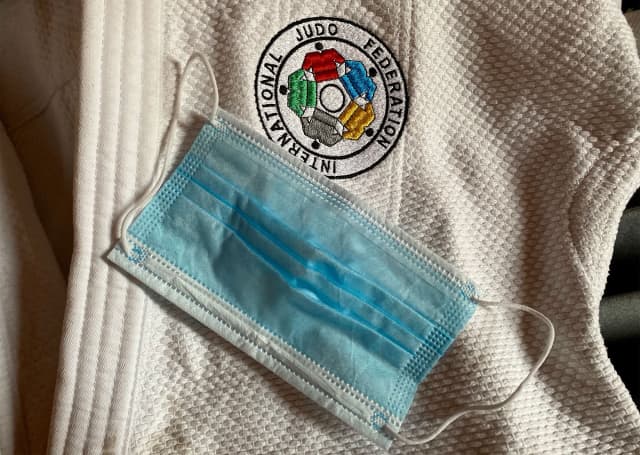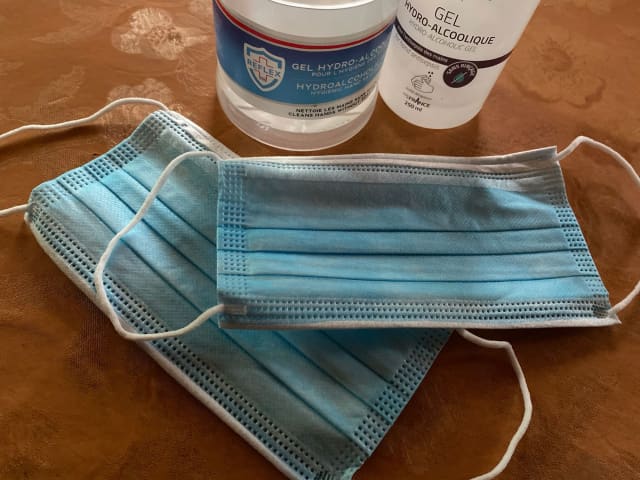No one can joke about the health of athletes. That is why the IJF has established strict measures that we must all respect; starting with the medical tests prior to the tournament, that everyone must have. Both athletes and staff members will live in a bubble, created to avoid any type of contagion. They will only travel from the hotel to the arena, where they will respect the safety distance. The use of the mask will be mandatory, with hand washing being encouraged frequently and, in short, there will be an almost martial monitoring of regulations.
Some measures seem unpleasant, discolouring the always friendly atmosphere of a judo tournament and this will be aggravated by the necessary absence of the crowd. However, they are fair measures, if we want to continue our activity, the final objective of which, at a competitive level is to organise contests and to focus on the athletes, our true heroes.
Naturally, all possible scenarios have been studied and prepared. The best thing, obviously, would be that no positive case is registered, which would demonstrate the success of such a device. However, if not, we are also prepared to isolate and treat positive cases and protect the rest.
We talked with Andrea Ember from the IJF Medical Commission and who is at the heart of the protocol that was specifically designed. She explains what will happen and how the whole procedure was created.
“The preparation for Grand Slam Hungary and any other future event started by creating health and safety protocols that can be applied during the pandemic. The first step was the protocol for how to resume training, that was published already several weeks ago. The next step was the how to resume competition document. Even though each event is different, the basic governing principle is the same: we must create the safest environment for our teams and staff as is possible.”
Special measures had to be taken in order to guarantee the safety of everyone, “First of all, we had to gather as much information about the subject as possible. We studied numerous World Health Organisation (WHO) recommendations, scientific articles, general rules of the pandemic and related information. We calculated the risk of the equipment or materials we may use during an event and the general circumstances that a competition may create.
After this preparatory work we went through all the areas of a competition, starting with volunteers welcoming teams at the airport, through to the staff at the medal ceremony. We took into account how each group can maintain their natural workflow, adjusting their operations to the pandemic conditions, where everything must be constantly cleaned, surfaces wiped, social distancing kept, etc.
Therefore the protocol on how to resume competition is the accumulation of this preparatory work. It provides a framework of safety measures that can be followed at both national and international level.
Each competition is different. Everything depends on the environment, the size of the venue, the number of participants, the distance between the hotel(s) and the venue, etc. However, there are some general rules that must be followed by every host federation or club.
The most basics are the sanitary rules, cleaning regulations, the equipment that is needed to keep the environment safe. We will, for instance, need to clean and sanitise the tatami regularly.
For example, in Budapest the tatami is going to be treated with a special solution, safe for the athletes but lethal for germs and viruses, that forms a protective layer and combined with a cleaning regime every hour during the day, we can keep the tatami, all three mats, safe throughout the competition. Even referees will have a special layer applied to their footwear that can be easily sanitised after each contest.
We’ll try to do everything on our side, however, we can succeed only with the help of the participants. We are all equal in this game. To double the effort of the staff, each athlete can contribute to the safety of the event by constantly wearing a mask unless they are competing on the tatami, regularly washing and sanitising their hands and following all safety regulations in play. Their responsible behaviour is as important as the organisers’ actions. We believe and we trust that the teams understand that every restriction is in their interest, to keep them and everyone safe.”
A special task force was created to manage everything, “To concentrate the know-how that is needed to carry out all the safety measures and to have all knowledge at hand, we created the position of ‘Covid Manager’, in both the Local Organising Committee’s (LOC) and IJF’s teams and we asked each incoming federation to name their own Covid manager in advance too, who is responsible, for example, for informing the organisers and IJF about any health issue that might be related to the virus, because each participant, including coaches, physios, etc., are going to be tested after arriving at their hotels. Team Covid managers will play a crucial role in aiding our PCR testing effort, by instructing their teams on how to cooperate most efficiently.
The LOC Covid Manager, the IJF Covid Manager, dedicated members of the LOC and the IJF Medical Commission are in daily contact. This unit is responsible not just for PCR testing but any other health related matter, such as what to do if someone falls ill or if someone shows symptoms of a Covid-19 infection. We can assure everyone that we are prepared and each team has already received the protocol for these scenarios.”
It is an important network of people, who are in permanent contact, “Beside the LOC/IJF Covid Managers, the head of security plays a very important part in organising the entry and departure of the teams. Mr Vari is in close contact with the Border Control Office at the airport and their officers are also prepared to welcome the judo family. We have established the necessary PCR test requirements, the documents that are needed for a smooth entry and they also created a dedicated line for the participants of the Hungary Grand Slam. We are in contact with the Border Control Forces who will ensure that those coming by car or bus and have reported to us which border crossing point they use to enter Hungary, will be treated and welcomed like those coming by aeroplane. We are, again, in contact with the relevant representatives of the government, National Public Health Centre and hotel management, to minimise the risk of participating in a mass sport event and provide the experience that everyone is long awaiting.”
While the pandemic will be in everyone’s mind during the event, the IJF Medical commission will still be involved in many other areas, “Apart from ensuring a safe environment from a Covid point of view, the IJF Medical Commission is responsible for ensuring a safe environment from a sport medical point of view as well, for example, preventing injury by constantly checking the warm-up area, the tatami, the venue, the equipment used by all the workgroups, is a must. Also, collaboration with the tatami doctors and the ambulance team is still part of the work we have to carry out. The job is not just checking other people’s work, in case of an injury, if there is any doubt about the diagnosis, it is always the IJF Medical Commissioner who has the final say. All our doctors have decades of experience in sport medicine and most of them are practising orthopaedic surgeons as well. As a final remit, after the contests, as usual, we are also responsible for overseeing the operations of the doping controllers, to guarantee that everything is carried out by the book.”
Grand Slam Hungary will be a premiere after months of inactivity. For us it will be the first time that we have to organise an event in such conditions. We are ready.



